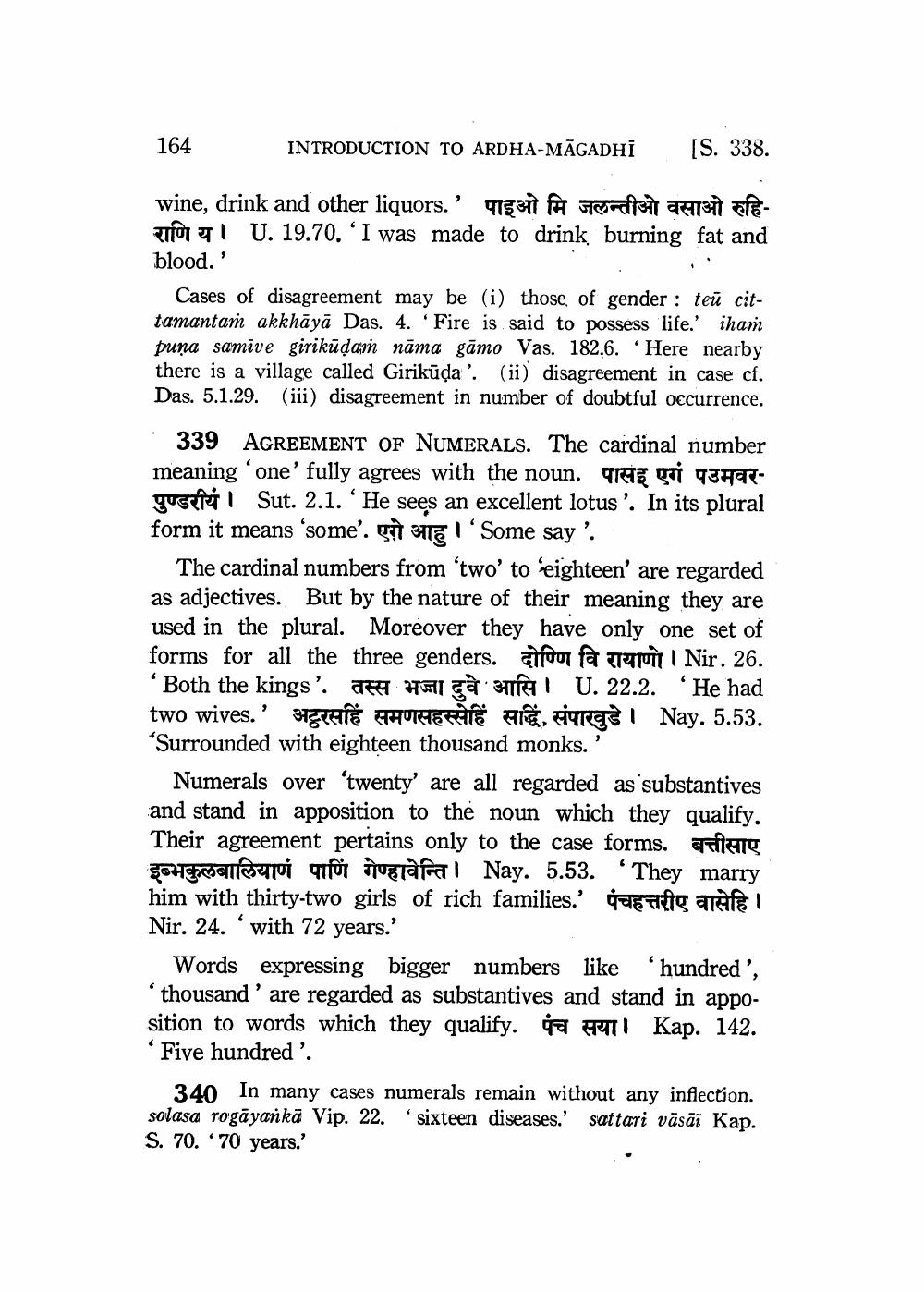________________
164
INTRODUCTION TO ARDHA-MĀGADHI
(S. 338.
wine, drink and other liquors.' 41537 F Fresneden aan ala
TO TI U. 19.70. “I was made to drink, burning fat and blood.'
Cases of disagreement may be (i) those of gender : teī cittamantam akkhāyā Das. 4. Fire is said to possess life.' iham puna samīve girikūļam nāma gāmo Vas. 182.6. Here nearby there is a village called Girikūda'. (ii) disagreement in case cf. Das. 5.1.29. (iii) disagreement in number of doubtful occurrence.
339 AGREEMENT OF NUMERALS. The cardinal number meaning 'one' fully agrees with the noun. Tria Ti TIHTyusstel Sut. 2.1. ' He sees an excellent lotus'. In its plural form it means 'some'. git BIE! 'Some say '.
The cardinal numbers from two' to 'eighteen' are regarded as adjectives. But by the nature of their meaning they are used in the plural. Moreover they have only one set of forms for all the three genders. aifour la Territ I Nir. 26. “Both the kings'. T ITÀ SUA I U. 22.2. 'He had two wives.' Brett WATHERINË ART, synge i Nay. 5.53. “Surrounded with eighteen thousand monks.'
Numerals over 'twenty' are all regarded as substantives and stand in apposition to the noun which they qualify. Their agreement pertains only to the case forms. ating SCHEUGIAT Tifu hugtafel Nay. 5.53. 'They marry him with thirty-two girls of rich families. Geng atat i Nir. 24.' with 72 years.'
Words expressing bigger numbers like 'hundred ', thousand' are regarded as substantives and stand in apposition to words which they qualify. jeg Kap. 142. 'Five hundred'.
340 In many cases numerals remain without any inflection. solasa rogāyankā Vip. 22. 'sixteen diseases.' sattari vāsāi Kap. S. 70. '70 years.'




